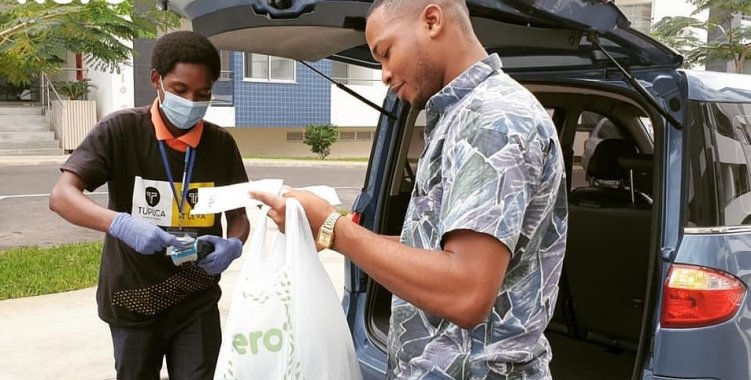This is the case with Tupuca, an online ordering application for Angolan entrepreneurs, which has grown "basically 500 percent" since last month, according to CEO Wilson Ganga.
Also Pedro Beirão, CEO of Appy Saúde, a digital platform for health services, saw the number of orders double in this period, with a peak in March, at the beginning of the state of emergency due to the "panic" of the people and the sudden shortage of pharmaceutical products.
Speaking to Lusa, businessman Wilson Ganga said that, in addition to invoicing, the number of partners has also increased substantially, from 200 to the current 250, with more than 500 already on the waiting list.
The platform, initially more focused on restaurants, has seen in recent times the business expand to supermarkets, beverages, pharmacies and, more recently, fashion.
Although meals continue to be Tupuca's strong dish, concentrating around 70 per cent of orders, the demand for other types of products has also intensified and some hyper chains and supermarkets have recently joined the platform.
"Customer demand has increased a lot," said Wilson Ganga, adding that another 75 "tupuquinhas" have been hired to make the deliveries.
To meet the demand, the entrepreneurs adapted and directed the fleet of the group's most recent company, T'Leva, a platform for transporting people and goods launched in February 2019, for deliveries.
"As demand for T'Leva has fallen, especially at weekends, we have directed the T'Leva fleet to Tupuca and the T'Leva drivers who are doing both services, can make deliveries or taxi services", he detailed.
The fleet already reaches 300 cars divided by the two platforms, mainly electric, besides 90 motorcycles.
Wilson Ganga, believes that after the pandemic, which led to the emergence of new applications in the restaurant area in this period, the evolution of the company will continue to be positive.
"The business is there, the entrepreneurs want to expand sales and have started to join the application and people have meanwhile also got used to using it for convenience," he says, considering that Angola is entering a level of "e-commerce" comparable to that of other economies.
Pedro Beirão, the founder of Appy Saúde, agrees that at peak demand, when "people were quarantined" the demand for pharmaceutical products skyrocketed, and there was even some shortage.
Appy Saúde saw a large increase in demand for masks - the "top" product, according to Pedro Beirão - gloves, alcohol gel and antibiotics, as well as chloroquine, a drug used in the treatment and prophylaxis of malaria, which has also been used to treat covid-19.
Pedro Beirão says that Appy has been able to adapt quickly to the growth in demand, because it has a "scalable" digital model, so despite demand doubling, it has not had to increase the number of workers in the same proportion, although it has strengthened the support area.
In order to ensure the timely delivery of orders, taking into account that it was limited to the city centre and extended to areas of the periphery, they partnered with transport partners
Pedro Beirão also stressed that the pandemic "has accelerated innovation", with Appy preparing the introduction of new tools and features, including the possibility of adding prescriptions and insurance.
With more than 40 associated pharmacies and around 20 online health service providers (expected to be 40 soon) and a platform available in Luanda, Benguela and Huambo, Appy will continue to expand, driven by the new online payment modalities that are also being introduced in Angola, the entrepreneur believes.
"People had no experience and saw that the service, which is free, is responsive, being able to order the products and pick up at pharmacies or receive at home. This makes life easier and from there, people get used to it. I think that the trend is to continue to have a gradual growth, something that will be generalized to all the delivery services," predicts Pedro Beirão.







